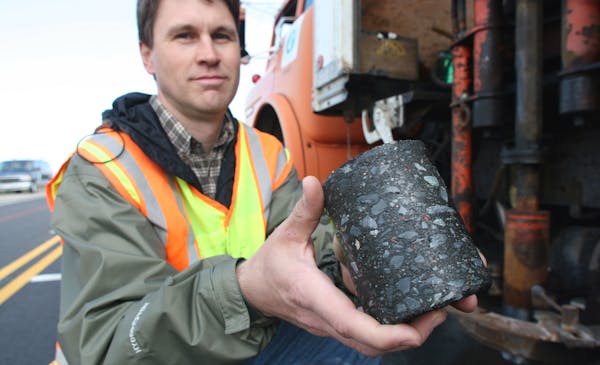Listen and subscribe to our podcast: Via Apple Podcasts | Spotify | Stitcher
Sheriff's offices across the state handle such a diverse range of tasks that it can be challenging for the public to keep with them all. They serve eviction notices, investigate boating accidents, run jails and sometimes even patrol the streets, among other responsibilities.
Reader Barbara Kiedrowski specifically wanted to know the difference between the Hennepin County sheriff and local police departments. She sought an answer from Curious Minnesota, the Star Tribune's community reporting project fueled by great questions from inquisitive readers.
The Hennepin County Sheriff's Office is one of the largest law enforcement agencies in the state. It employs more than 800 people and has a budget of about $122 million, roughly $40 million shy of what Minneapolis allocated for its police department this year.
Unlike appointed police chiefs, however, sheriffs are elected by the public.
"The most important difference between the sheriff's office and police is that we serve at the will of the people," said Hennepin County Sheriff David Hutchinson, who was elected in 2018. "We don't have any obligation to input from county commissioners or political figures.
In Hennepin County, the largest chunk of the sheriff's responsibilities are running the state's largest jail and providing courthouse security. The downtown Minneapolis jail handles an average of 31,000 people each year and sheriff's deputies must transport inmates from jail and mental health facilities to court appearances. The county has seven courthouses in four cities.
But state law requires county sheriff's offices to perform many other duties. They must pursue and apprehend felons, for example, and help with civil court matters like carrying out evictions and selling foreclosed properties. They must also investigate boating accidents and search for drowned bodies and lost persons.
"If somebody unfortunately drowned in a hotel swimming pool in Minneapolis, we would investigate," Hutchinson said.
The county also handles 911, fire and other emergency dispatch services for nearly all of the county's 45 cities except Minneapolis, Bloomington, Richfield, Edina and St. Louis Park, Hutchinson said.
Sometimes sheriff's deputies effectively act as the local police department. The small jurisdictions of Medicine Lake, Greenfield, Hanover and Fort Snelling — which is unincorporated — contract with the sheriff's office for patrol service.
The county also processes permits to carry firearms. More than 11,000 permits were issued last year.
Not everything the office does is required under state law. The sheriff's office has units that handle a variety of non-mandatory criminal and forensic investigations and assistance to other cities.
The county's crime lab analyzes DNA, firearms and fingerprints for local police and other agencies, for example. The office frequently assists the bigger cities and the University of Minnesota on cases, such as being asked to coordinate security at the large protests in Brooklyn Center after the fatal shooting of Daunte Wright by a police officer.
A group of deputies do round-the-clock security at the county's largest hospitals and offer classes to the public on how to administer Narcan, a drug that can prevent deaths from opioid overdoses.
Hutchison was a sergeant with the Metro Transit Police Department before he decided to run for sheriff in 2018.
"I am in direct contact with the people, no matter what their political affiliation," he said. "I hear what the community wants and can put it into practice."
Hutchinson has made a number of changes since coming into office. This fall, he curtailed the use of the county jail for detaining people on immigration charges. His office has also launched several new programs for jail inmates, including education services and opioid treatment.
If you'd like to submit a Curious Minnesota question, fill out the form below:
Read more Curious Minnesota stories:
What kind of police training do cops receive across the state? Is there one standard?
How are courts in Minnesota coping with the pandemic?
Why isn't it a crime to punch someone in the face in pro hockey?
Why are felons in Minnesota stripped of their voting rights?
Did St. Paul really protect gangsters during the Prohibition era?
Is it legal to panhandle in the median of Minneapolis streets?






